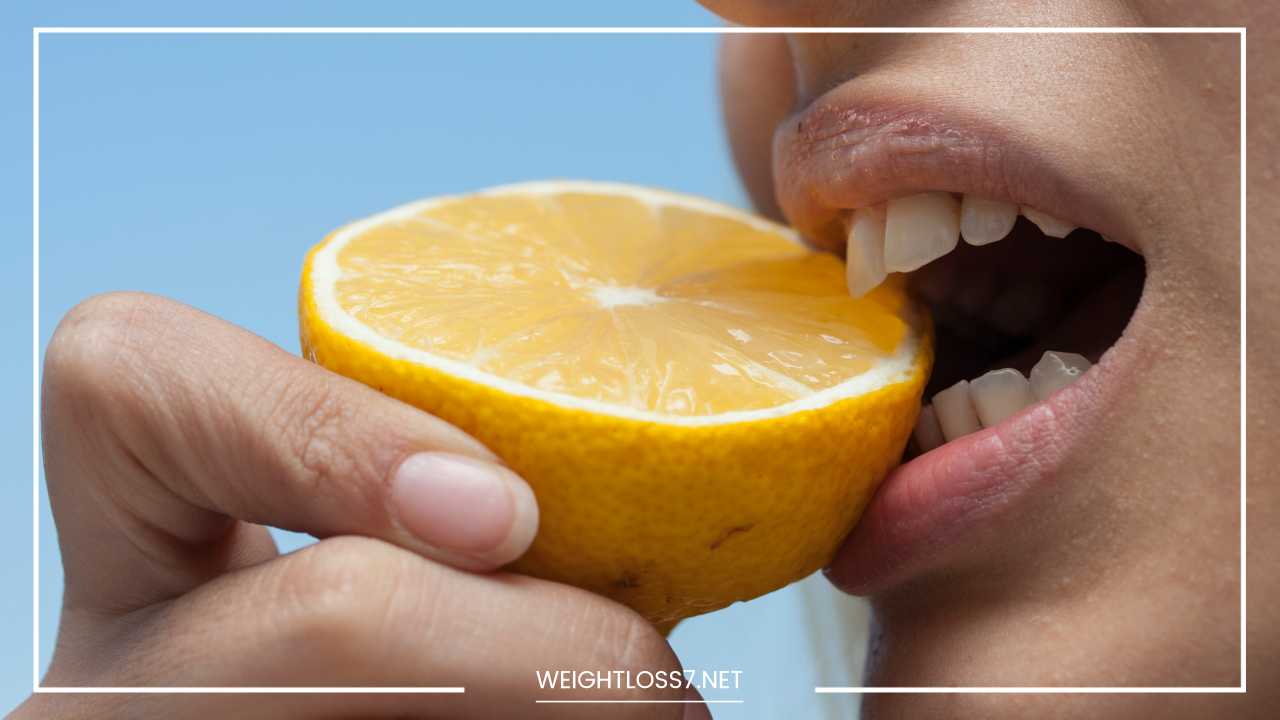Vitamins for Strong Teeth and Healthy Gums

Vitamins for Strong Teeth
The Powerhouse Pantry: Vitamins for Strong Teeth and Healthy Gums
Sparkling white teeth and healthy gums aren’t just about a winning smile; they’re a window into your overall well-being. Just like the rest of your body, your teeth and gums thrive on a balanced diet rich in essential nutrients.
But have you ever wondered which vitamins specifically contribute to a healthy mouth?
This comprehensive blog post delves into the fascinating world of vitamins and their impact on your oral health. We’ll explore the key players, their functions in detail, and discuss how to incorporate them into your diet for a smile that shines with confidence.
We’ll also explore some lesser-known but equally important nutrients and delve into the importance of a balanced approach to oral health.
The Calcium Conundrum: The Bedrock of Strong Teeth
We all know calcium is vital for bones, but it reigns supreme for teeth as well. This mineral forms the foundation of your tooth enamel, the hard outer layer protecting your teeth from decay. Think of calcium as tiny building blocks that give your teeth their strength and resilience.
A Deeper Dive into Calcium: Beyond just building strong enamel, calcium plays a crucial role in tooth development and remineralization.
When you eat sugary foods, acids are produced in your mouth that can erode tooth enamel. Saliva, rich in calcium and other minerals, helps neutralize these acids and can even repair early signs of enamel erosion through a process called remineralization.
However, without sufficient calcium intake, this remineralization process becomes less effective, leaving teeth more vulnerable to cavities.
Beyond Dairy: Exploring Calcium-Rich Options: While dairy products like milk, cheese, and yogurt are excellent sources of calcium, there are plenty of vegan and lactose-intolerant-friendly options.
Leafy greens like kale and collard greens are surprisingly rich in calcium. Fortified foods like cereals, orange juice, and plant-based milks are also great choices.
Here’s a pro tip: Pair your calcium intake with vitamin D, which helps your body absorb calcium more efficiently. We’ll explore the sunshine vitamin next!
Vitamin D: Sunshine for a Healthy Smile
Often referred to as the “sunshine vitamin,” vitamin D plays a crucial role in bone and tooth development. It regulates calcium and phosphorus levels in the body, both essential minerals for strong teeth. Studies have shown a link between vitamin D deficiency and an increased risk of cavities and gum disease.
The Science Behind Vitamin D and Oral Health: Vitamin D acts as a receptor activator in bone metabolism, promoting the formation of healthy bone tissue in your jaw, which provides a strong foundation for your teeth. Additionally, vitamin D helps regulate the immune system, which plays a role in preventing gum inflammation.
Soaking Up the Sun (Safely): The most natural source of vitamin D is sunlight exposure. However, sun safety is paramount. Aim for short bursts of unprotected sun exposure in the midday hours (typically between 10 am and 3 pm), following sun safety guidelines to avoid sunburn.
Dietary Sources of Vitamin D: If sun exposure isn’t sufficient, incorporate fatty fish like salmon, tuna, and mackerel into your diet. Vitamin D is also often fortified in milk, cereals, and mushrooms.
Considering Supplementation: If you suspect you might have a vitamin D deficiency, consult your doctor. They can assess your vitamin D levels and recommend an appropriate supplement dosage.
Vitamin C: The Gum Guardian
When it comes to gum health, vitamin C takes center stage. This powerful antioxidant strengthens the connective tissues in your gums, which are responsible for anchoring your teeth in place. A lack of vitamin C can lead to weakened gums, making them more susceptible to inflammation and bleeding – the early signs of gum disease.
The Power of Vitamin C in Gum Health: Vitamin C plays a vital role in collagen production. Collagen is a protein that forms the building blocks of connective tissues, including those in your gums.
Adequate vitamin C intake ensures your gums are firm and resilient, effectively supporting your teeth. Additionally, vitamin C’s antioxidant properties help combat free radicals that can contribute to gum inflammation.
A Rainbow of Vitamin C-Rich Choices: Fortunately, incorporating a variety of vitamin C-rich fruits and vegetables into your diet is easy.
Citrus fruits like oranges, grapefruits, and lemons are well-known sources, but don’t forget about bell peppers, strawberries, kiwifruit, broccoli, and Brussels sprouts.
Here’s an interesting fact: Unlike most mammals, humans can’t produce their own vitamin C, so including it regularly in your diet is crucial.
Vitamin A: The Mucous Membrane Marvel
Vitamin A plays a multifaceted role in oral health. It helps maintain the health of your mucous membranes, the thin layer of tissue lining your mouth. These membranes act as the first line of defense against bacteria and viruses that can contribute to gum disease.
Additionally, vitamin A is essential for salivary gland function. Saliva plays a vital role in washing away food particles and neutralizing harmful acids in your mouth, protecting your teeth from decay.
Beyond the Basics: Vitamin A and Immunity: Vitamin A also plays a role in supporting a healthy immune system. A strong immune system helps your body fight off infections, including those that can affect your gums. Deficiencies in vitamin A have been linked to an increased risk of canker sores, a type of mouth ulcer.
A Colorful Approach to Vitamin A: To up your vitamin A intake, include a variety of brightly colored fruits and vegetables in your diet. Sweet potatoes, carrots, spinach, kale, and cantaloupe are all excellent sources. Liver is another source, but be sure to consume it in moderation due to its high vitamin A content.
Vitamin B-Complex: A Team Effort for Oral Health
The B vitamins, including B12 and folic acid, work together to ensure healthy cell growth and function throughout your body, including your mouth. Deficiencies in certain B vitamins have been linked to mouth sores, a burning sensation in the mouth, and even glossitis (inflammation of the tongue).
Going Beyond the Headlines: B Vitamins and Oral Health: Here’s a deeper dive into how specific B vitamins contribute to oral health:
- Vitamin B12: This vitamin plays a role in red blood cell production and nerve function. A deficiency can lead to a burning sensation in the mouth and difficulty maintaining a healthy tongue.
- Vitamin B6: This vitamin is involved in protein metabolism and helps maintain healthy mucous membranes in your mouth. A deficiency can cause mouth sores and inflammation.
- Folic Acid: This B vitamin is essential for cell division and repair. Deficiencies in folic acid have been linked to an increased risk of canker sores.
Building a B Vitamin Bonanza: Getting enough B vitamins is relatively simple. Include lean meats, poultry, fish, eggs, and dairy products in your diet. Leafy green vegetables, legumes, and nuts are also excellent sources.
Here’s a bonus tip: Since B vitamins are water-soluble, they aren’t stored in the body for long periods. Aim for consistent intake throughout the week to maintain optimal levels.
Beyond the Usual Suspects: Exploring Lesser-Known Vitamins and Minerals
While the vitamins mentioned above are essential players in oral health, some lesser-known nutrients also deserve a mention:
- Vitamin K: This vitamin plays a role in blood clotting and bone health. Studies suggest that adequate vitamin K intake might be beneficial for maintaining healthy gums. Leafy green vegetables and fermented foods like納豆 (natto, a fermented soybean dish) are good sources.
- Magnesium: This mineral works with calcium to build strong bones and teeth. It might also help reduce inflammation, potentially benefiting gum health. Nuts, seeds, and leafy greens are good sources of magnesium.
- Coenzyme Q10 (CoQ10): This antioxidant is essential for cellular energy production. Some studies suggest that CoQ10 might be helpful in treating gum disease, although more research is needed. Organ meats and oily fish are natural sources of CoQ10.
Important Note: While these lesser-known nutrients might offer potential benefits for oral health, consult your doctor before taking any supplements. They can advise you on the appropriate dosage based on your individual needs and potential interactions with any medications you’re taking.
A Balanced Approach to a Healthy Smile: It’s Not Just About Vitamins
While vitamins play a vital role in oral health, a well-rounded diet is key. Here are some additional tips to keep your smile bright and healthy:
- Practice good oral hygiene: Brushing twice a day for two minutes and flossing daily are essential for removing plaque and food debris that can contribute to cavities and gum disease.
- Limit sugary drinks and processed foods: Sugary drinks and processed foods create an acidic environment in your mouth, promoting tooth decay. Opt for water and unsweetened beverages instead.
- Schedule regular dental checkups: Regular dental checkups allow your dentist to identify and address any potential problems early on. This can help prevent cavities, gum disease, and other oral health issues.
- Don’t smoke: Smoking is a major risk factor for gum disease and oral cancer. If you smoke, quitting is one of the best things you can do for your overall health, including your oral health.
- Manage stress: Chronic stress can weaken your immune system and make you more susceptible to oral health problems. Find healthy ways to manage stress, such as exercise, yoga, or meditation.
Confidence and Beyond: The Ripple Effect of a Healthy Smile
A healthy smile goes beyond the aesthetics of pearly whites. It impacts your overall well-being in several ways:
- Boosts Confidence: A bright smile can boost your confidence and self-esteem. When you feel good about your smile, you’re more likely to smile often, which can make you appear more approachable and friendly.
- Improves Communication: A healthy smile allows you to speak clearly and effectively. Missing or damaged teeth can impede your speech, making it difficult for others to understand you.
- Enhances Overall Health: Oral health is closely linked to overall health. Research suggests that chronic gum disease can be linked to an increased risk of heart disease, stroke, and diabetes. Maintaining good oral health can contribute to your overall well-being.
- Promotes Positive Social Interactions: A healthy smile can open doors to positive social interactions. It can make you feel more comfortable smiling and laughing in social settings, fostering stronger connections with others.
Final Word: A Smile is a Journey, Not a Destination
Taking care of your oral health is an ongoing journey, not a one-time destination. By incorporating the tips and information shared in this blog post, you can make informed choices about your diet and lifestyle habits, all contributing to a healthy and radiant smile.
Remember, a healthy smile is a reflection of your commitment to well-being, and it can positively impact your confidence, communication, overall health, and social interactions.
So, brush up on your oral hygiene knowledge, stock your pantry with smile-friendly foods, and schedule regular dental checkups. With a little effort, you can cultivate a healthy smile that shines brightly, both inside and out.

















